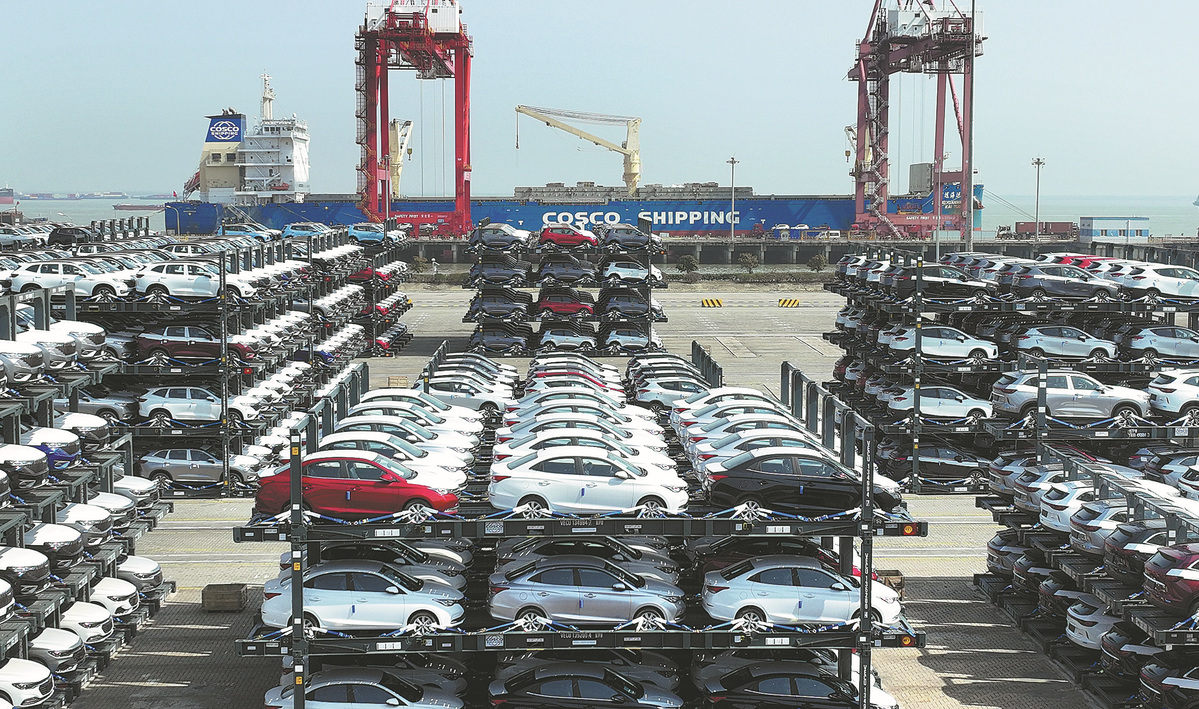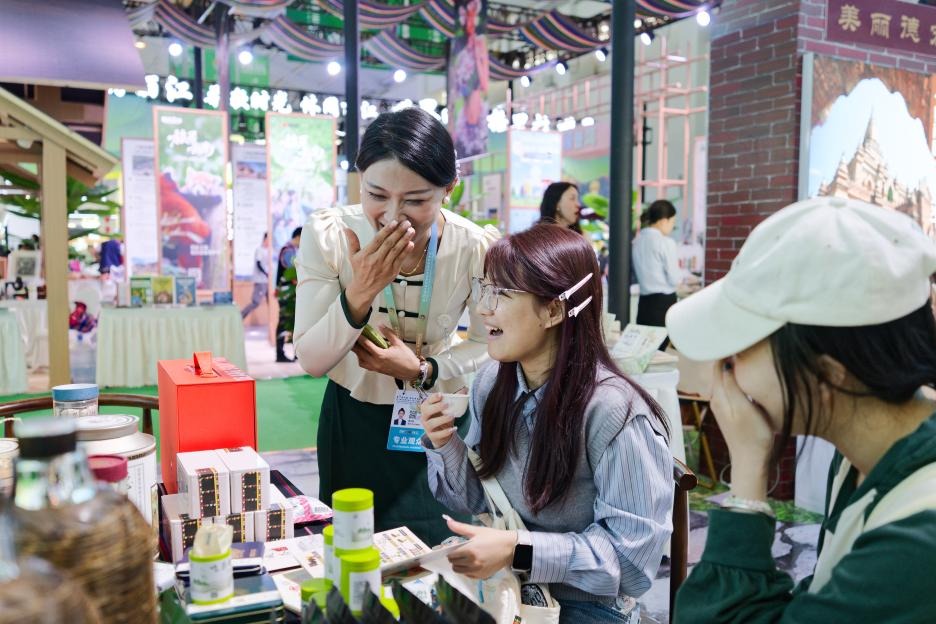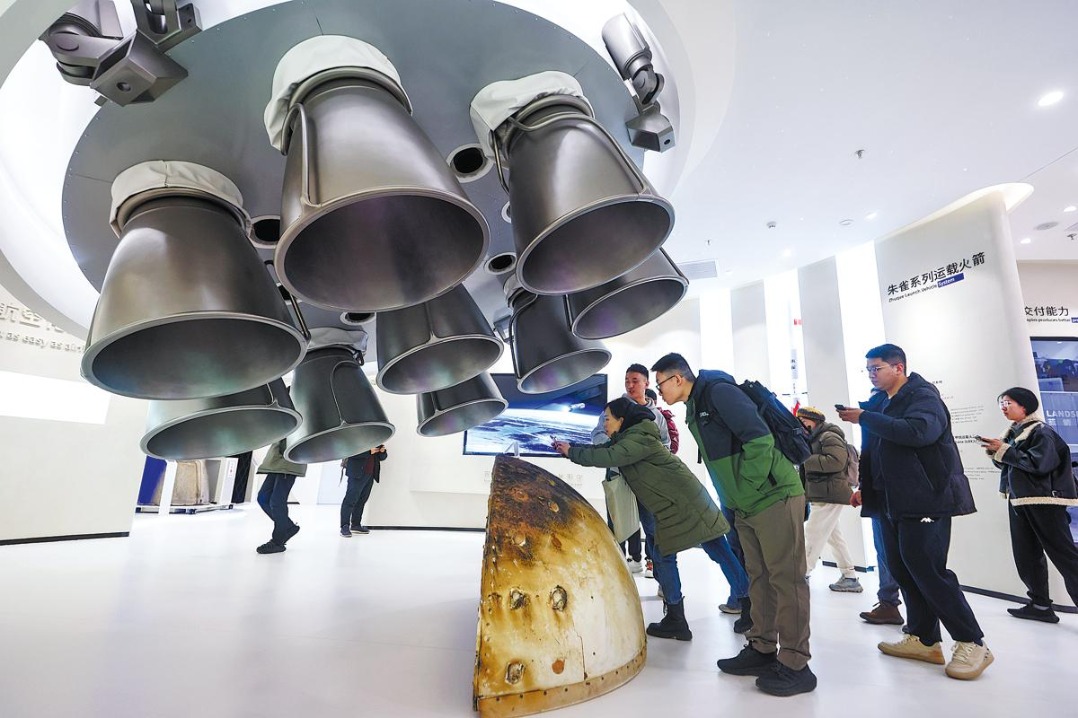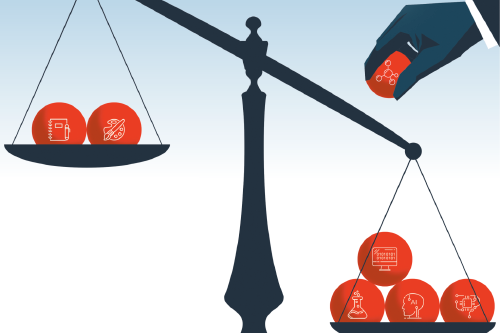Getting China right starts with perception
By Yi Xin | chinadaily.com.cn | Updated: 2023-12-12 11:06

"The imperative for security and control on the economy trumps the logic of free markets and open trade," this is how European Commission President Ursula von der Leyen described China in her introductory remarks delivered at the European China Conference 2023 last month.
Actually, her remarks did hit the nail on the head, but not for China.
For example, when faced with competition from Tesla, China chose to embrace the electric vehicle (EV) manufacturer with open arms, enabling it to get a big bite of the vast Chinese market. Thus came the company's Shanghai gigafactory, the most productive EV factory in the world. Doing so will of course impose great pressure on domestic companies, but China believes that healthy competition and an open market will eventually lead to win-win results.
This approach stands in stark contrast to the choice of the European Commission, whose answer to competition in the EV sector is outright protectionist—launching anti-subsidy investigations into China's EVs. Should the investigation lead to undesirable findings, the European Commission will mull over imposing duties on imports of battery EVs from China.
Instead of "protecting" EV manufacturers within the EU, the investigations and potential measures risk distorting prices and disrupting supplies in the long run. Market demand is unlikely to change, but with additional duties in prospect, Europeans may have to pay higher prices for imported EVs. Less competition from the outside also means that European homegrown EV manufacturers have less incentive to innovate, which will only delay European efforts in emission reduction and green transition.
It is also noteworthy that the probe is an ex officio initiation, which means no complaint has been received from the industry. This makes the probe more politically motivated. If the Commission genuinely wanted to give the European EV industry headroom to grow, it would have gone for a "safeguard measure", which gives temporary protection against all imports, rather than singling out China. And if the EU truly believes "competition is an invitation to sharpen our saw", as stated by President von der Leyen in her speech, then why is it so afraid of competition from outside Europe?
In her speech, President von der Leyen also claimed that "China has become less welcoming of foreign businesses," which is again wide of the mark.
Just in recent months, China rolled out a slew of measures to attract foreign investment. In August for instance, the State Council issued a 24-point guideline covering six areas, which is intended to improve the climate for foreign investment and attract more funds. Most recently, at the Third Belt and Road Forum for International Cooperation held in Beijing, President Xi Jinping announced that China would lift all restrictions on foreign participation in manufacturing.
The fact is that China has never wavered in its determination to open up further. The China International Import Expo, or CIIE, which has been held for six years running, is a case in point. It is the world's first and only import-themed expo, demonstrating China's strong desire to share its vast market opportunities with the world. Over 3,400 exhibitors and nearly 410,000 professional visitors registered for the sixth CIIE last month, including 289 Fortune Global 500 companies and many leading industry players. Some USD 78.41 billion worth of tentative deals were reached for one-year purchase of goods and services, setting a new record in the expo's history.
China's government departments are also on the move to foster a better business environment for foreign companies. Earlier this year, the Ministry of Commerce upgraded its roundtable mechanism with foreign businesses, whereby routine meetings will be held to hear and address their concerns. If anything, China is becoming more welcoming of foreign businesses, not less.
Last but not least, a few words on de-risking. De-risking creates artificial barriers and presents risks in itself. Ultimately, it is the business sector, not politicians, that knows best what real risks are and how to fend them off. If the EU truly believes in free markets and open trade, the best thing it can do is to keep its hands off business behavior and refrain from defining risks on behalf of companies.
Overall, a lot of arguments in President von der Leyen's speech don't stand up to scrutiny. But she is right on one thing: Getting China right has never been more important than today. The 24th China-EU Summit this week serves as an important opportunity for both sides to better understand each other, especially on the occasion of the 20th anniversary of China-EU comprehensive strategic partnership. Put simply, for the EU, China is not a risk, but an opportunity. It is high time that the EU come to this reasonable perception.
The author is a Beijing-based international affairs commentator.
If you have a specific expertise, or would like to share your thought about our stories, then send us your writings at opinion@chinadaily.com.cn or comment@chinadaily.com.cn.
























